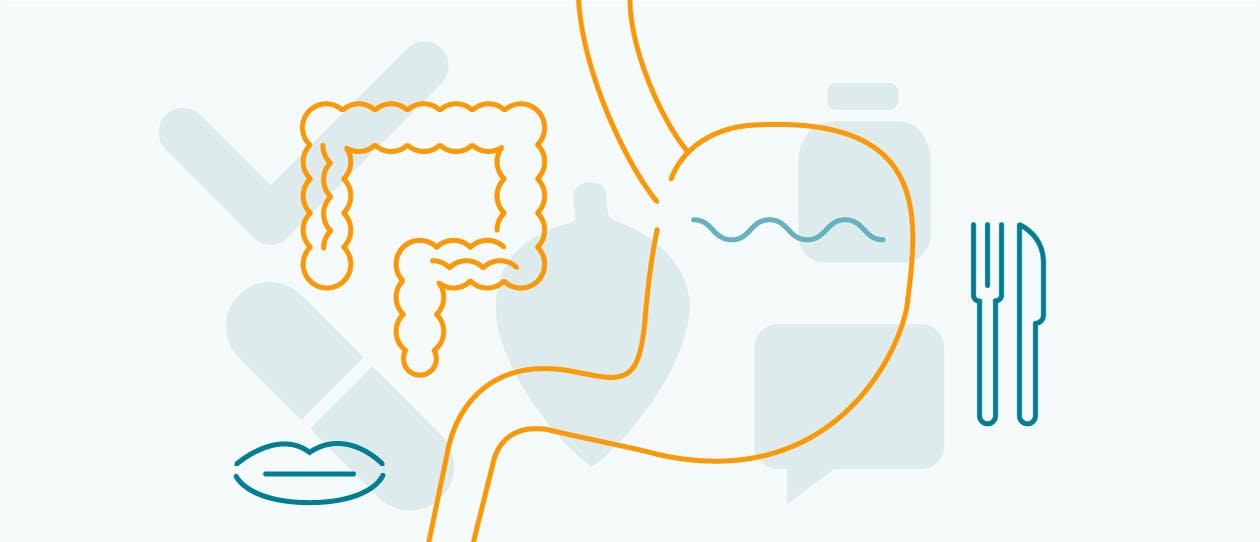
Indigestion
1
Indigestion is a term that’s used to describe a wide variety of symptoms in the upper digestive tract.


Most people experience indigestion now and then, and occasional episodes are not cause for concern.
It is most commonly caused by:
Being overweight or obese increases the likelihood of indigestion by putting physical pressure on the stomach and intestines. The symptoms may be exacerbated by any activity that further increases the pressure on the gastrointestinal tract (e.g. bending over).
In some cases, recurrent episodes of indigestion may indicate the presence of an underlying health problem.